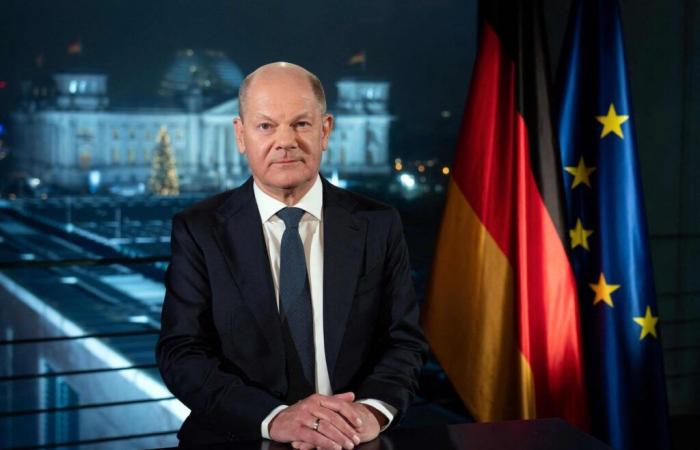Attack in Magdeburg –
German authorities explain themselves after the attack
Germany is investigating possible security failures after the Magdeburg attack, reigniting the debate on immigration and security.
Published today at 2:55 p.m.
Chancellor Olaf Scholz promised to shed light on possible “failings on the part of the authorities in Saxony-Anhalt”, the Magdeburg region, “or at the federal level”.
AFP
Subscribe now and enjoy the audio playback feature.
BotTalk
German government and security officials began intense questioning on Monday following controversy over possible failures during the deadly car-ramming attack on the Magdeburg Christmas market. Interior Minister Nancy Faeser, at the center of the controversy, must speak in the afternoon after a hearing before the deputies who are demanding accountability.
Could the tragedy, which left five dead and more than 200 injured on December 20, have been avoided? “I would like to know that too,” Chancellor Olaf Scholz asked in advance on Friday during an interview with the t-online site. Campaigning for his re-election two months before the early legislative elections, the Social Democratic head of government promised to shed light on possible “failings on the part of the authorities of Saxony-Anhalt”, the Magdeburg region, “or in federal level.
“This horrible act continually occupies my mind,” added Olaf Scholz, recognizing that the authorities have benefited “over the years” from numerous “clues” about a possible act by the Saudi suspect, Taleb. Jawad al-Abdulmohsen
Hostile to Islam
For ten days, Germany has been wondering about the reasons which pushed this 50-year-old doctor who came to Germany in 2006 to mow down the crowds at the Christmas market aboard a powerful BMW vehicle going at full speed.
A difficult personality to pin down, the trained psychiatrist has pell-mell expressed opinions hostile to Islam, his anger against German immigration officials and his support for far-right conspiracy stories about an “Islamization” of Europe.
According to the court, the man, currently in pre-trial detention, appears to have acted to denounce the lack of support from the German authorities responsible for asylum to Saudi refugees as having broken with their country and the Muslim religion.
The Federal Minister of the Interior, that of Saxony-Anhalt, officials of the authorities and the heads of the secret services began at midday on Monday to answer questions from a parliamentary committee. It takes place behind closed doors and must last two hours.
Threats and convictions
German media revealed countless posts by the suspect on social media, including threats of violence against German citizens and politicians.
As early as 2013, he was fined in Rostock, in northeastern Germany, for “disturbing public order” and “threats to commit crimes”. He was already threatening to commit an attack at the time.
More recently, Saudi Arabia asked Berlin for his extradition, after warning several times that he “could be dangerous,” a source close to the government in Riyadh told AFP.
The German police, after a “risk” assessment, judged last year that he did not present a “particular danger”. She conducted a first interview with him at the end of September 2023 in a police station, a second at the beginning of October 2024 at his workplace.
Immigration debate
On the political level, the attack placed the questions of immigration and security at the heart of the campaign for the early legislative elections on February 23. Taleb Jawad al-Abdulmohsen had refugee status and thus benefited from the protection of his host country.
During a demonstration in Magdeburg, the far-right Alternative for Germany (AfD) party demanded to “close the borders” in the face of “madmen from all countries”.
“We tolerate too many people in Germany who do not want to integrate,” conservative Friedrich Merz, the big favorite in the polls to become the future chancellor, also said on Friday. He recommends facilitating expulsions “even below the threshold of established criminal offenses”.
Olaf Scholz, for his part, recalled that the right-wing opposition had blocked in October part of the bill toughening the country’s migration policy, which provided for additional investigative powers for the police.
“Latest news”
Want to stay on top of the news? “Tribune de Genève” offers you two meetings per day, directly in your email box. So you don’t miss anything that’s happening in your canton, in Switzerland or around the world.
Other newsletters
Log in
AFP
Did you find an error? Please report it to us.
0 comments






